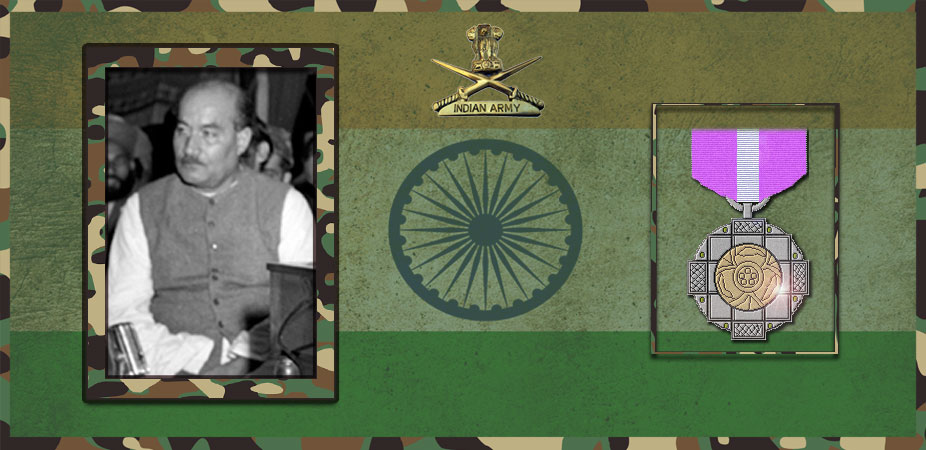Let's salute to our Indian Army together, We are proud to be Indian.
Let's salute to our Indian Army together, We are proud to be Indian.

Josh Malihabadi (born as Shabbir Hasan Khan) (5 December 1894 – 22 February 1982) popularly known as Shayar-e-Inquilab (poet of revolution) is regarded as one of the finest Urdu poets of the era of British India.He is considered top in the list of Urdu literature who uses thousands of high sounding rich words in his poetry. A connoisseur of words, Josh coined new phrases and gave fresh resonance to the old ones. Josh always challenged the established order and stood for liberal values. Josh was loud, brave who never compromised on principles. He wrote over 100,000 beautiful couplets and more than 1,000 rubaiyat in his lifetime. His autobiography “Yaadon ki Barat” is considered one of the best so far in Urdu as it is written in frank and candid manner. The first Prime Minister of India, Jawaharlal Nehru held him in high esteem and hardly missed a chance to attend the mushaira at Lala Kishan Lal Kalra’s United Coffee House where Josh used to be the star attraction.He was an Indian citizen until 1958, when he emigrated to Pakistan and became a Pakistani citizen.
Josh was born to an Urdu-speaking Muslim family of Afridi Pashtun origin in Malihabad, United Provinces, British India. He received early education in Arabic, Persian, Urdu and English at his home. He studied at St Peter’s College, Agra and passed his Senior Cambridge examination in 1914. Subsequently, he studied Arabic and Persian and, in 1918, spent six months at Tagore’s university at Shantiniketan. The death of his father, Bashir Ahmed Khan, in 1916, prevented him from undertaking a college education.
His family had a long tradition of producing men of letters. Indeed, his great-grandfather, Nawab Faqeer Muhammad Khan’Goya’, grandfather Nawab Muhammad Ahmad Khan, paternal uncle Ameer Ahmad Khan and father Basheer Ahmad Khan were all poets with numerous works (poetry collections, translations, and essays) to their name. Another of his relative was the journalist, scholar and Abul Kalam Azad’s confident, Abdur Razzaq Malihabadi.
In 1925, Josh started to supervise translation work at Osmania University in the princely state of Hyderabad. However, his stay there ended when he found himself exiled for writing a nazm against the Nizam of Hyderabad, the then ruler of the state.
Soon thereafter, he founded the magazine Kaleem (literally, “speaker” in Urdu), in which he wrote articles in favour of independence from the British Raj in India. His poem Hussain aur Inquilab (Hussain and Revolution)won him the title of Shaair-e-Inquilaab (Poet of the Revolution). Subsequently, he became more actively involved in the freedom struggle (albeit, in an intellectual capacity) and became close to some of the political leaders of that era, especially Jawaharlal Nehru (later to be the first Prime Minister of independent India). After the end of the British Raj in India in 1947, Josh became the editor of the publication Aaj-Kal.